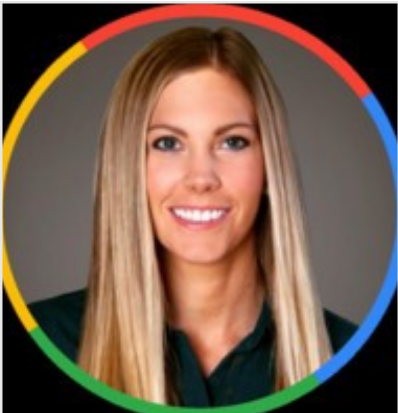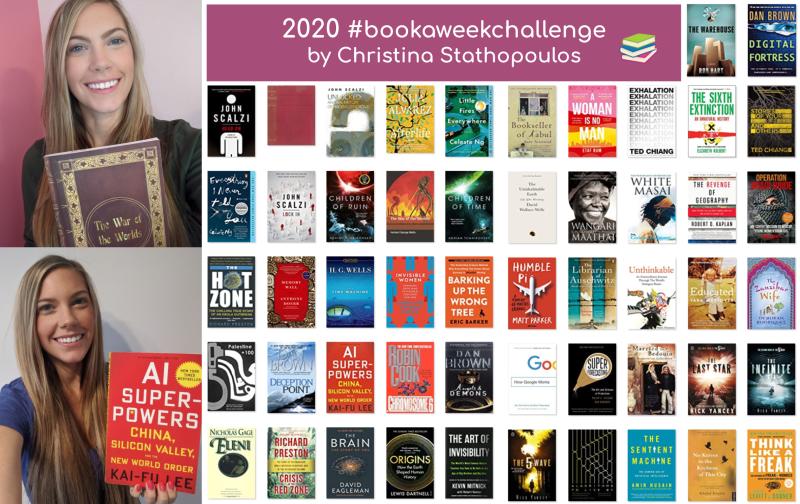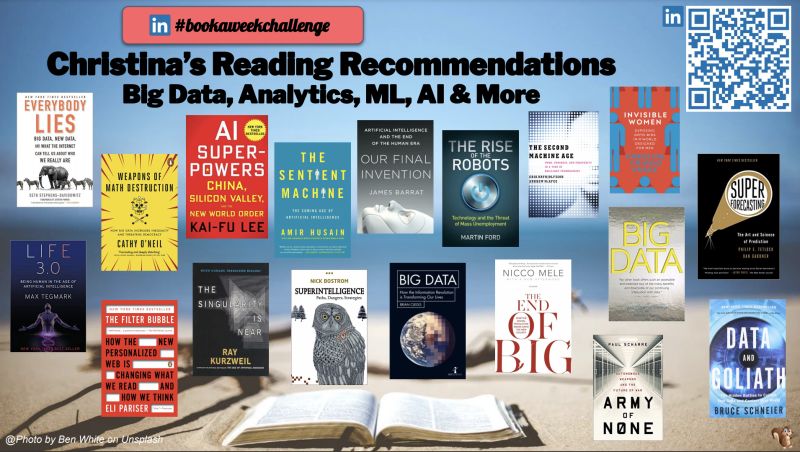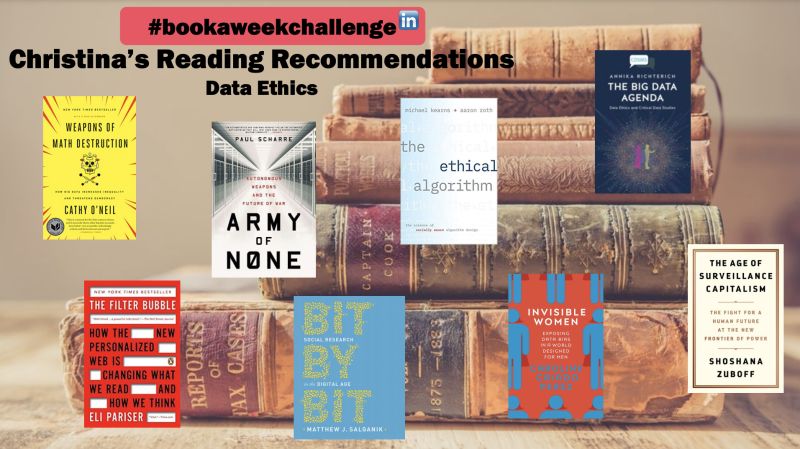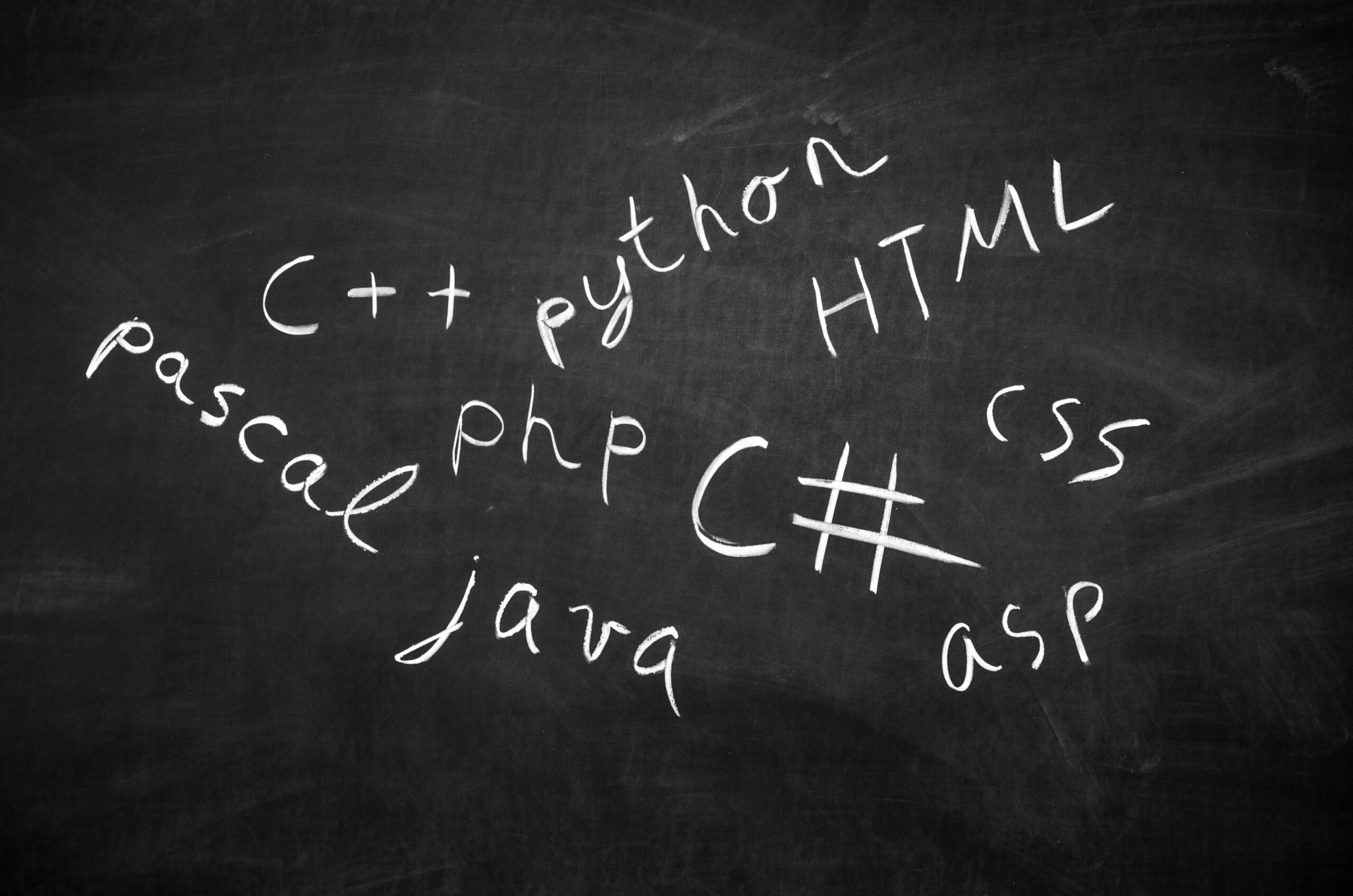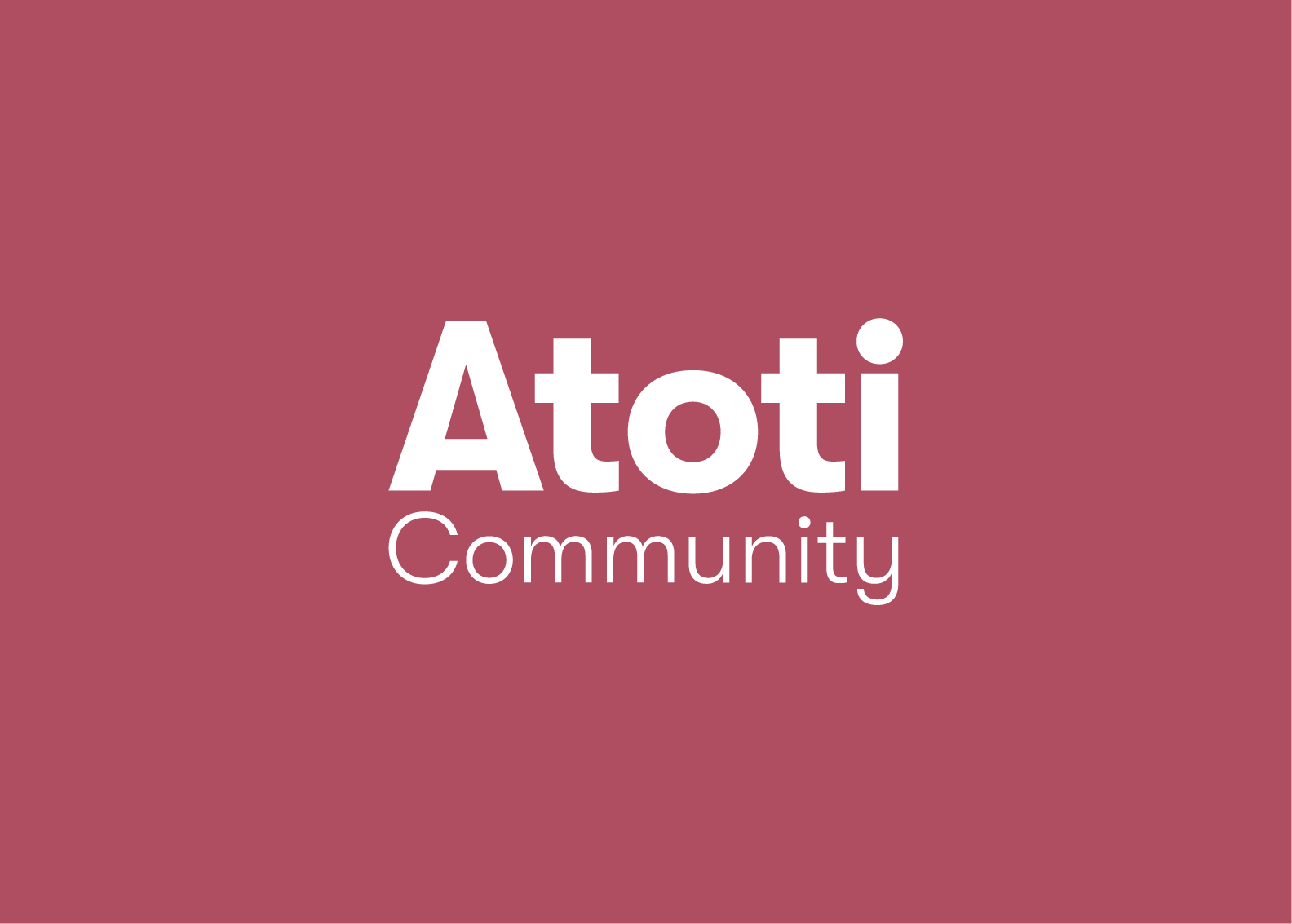Always supporting initiatives to build a more inclusive community
The definition of a bibliophile is a person who collects or has a great love for books.
It’s a befitting word to describe Christina who has been hosting the #bookaweekchallenge on LinkedIn for years. Not just a fast reader, Christina is also widely known as an avid public speaker with so many personal achievements (even without mentioning her latest role as an Analytical Lead with Waze @Google!).
Join us as we find out more about what makes Christina tick.
Huifang: What was the inspiration behind the #bookaweekchallenge?
Christina: It originally started as a personal goal for me to read more but then it became a community effort via LinkedIn. The idea is to encourage others to join the challenge and also push them to foster a continuous learning mindset via reading.
Commuting to work on the Metro before COVID, I realized that everyone was so hooked to their mobile devices. They played Candy Crush or scrolled through social media with no real purpose. Translating the time spent commuting to work, I calculated that’s seven and a half hours every week for me personally. That’s almost an entire workday per week and people are throwing it away achieving nothing.

I quickly realised that I didn’t want that to be me. I also didn’t want to see everyone around the Metro with their heads down on their phone. So I started the #bookaweekchallenge initiative to push others to pick up better habits. I began promoting it on LinkedIn as well and thankfully it has grown a lot.
I love reading. I would say I read at least an hour a day. Reading for me is to relax and to disconnect completely from screens. So, as a rule of thumb, I only read paperback books.
Huifang: How has the challenge evolved?
Christina: A lot of people know me through the #bookaweekchallenge. This year, I’m pushing the #bookamonthchallenge as well, in an attempt to be more inclusive. I realized that not everyone’s schedule is so forgiving. But I do think that everyone can at least finish one book a month.
The challenge has been picking up traction, especially with the continuing COVID situation. There are more participants frequently posting with the #bookaweekchallenge hashtag. It has become a unique form of networking through the LinkedIn platform. We virtually meet and interact with each other through our common love for reading, recommending different books.
Huifang: How has COVID changed your way of reading? Especially given that many bookshops are now closed.
Christina: I was lucky that I already had quite a large library prepared. There’s a lot of books that I haven’t yet read on my bookshelf. So I wasn’t missing books. However, you’re right about bookshops shutting down, it breaks my heart. One of my favorite things to do is visit local bookshops and indulge in the appealing ambience. I hope that as things get better in the world, bookshops come out of this alive and thriving.
In addition, I have been following the website bookshop.org since it launched. It is expanding globally and recently launched in Spain so I am looking forward to using it to support local bookstores
bookshop.org gives more power to local bookshops to sell their books online, allowing them to compete with big names like Amazon.
Also, I’ve been missing the physical interaction and the social side of sharing books, since we’ve been stuck inside because of COVID. In the past, people approached me to borrow all kinds of books. My workmates would ask to borrow some of the books that I’ve read. My visiting family and friends would look at my bookshelf and pick up what they wanted. Sharing books provides more topics of conversation to connect over.
Huifang: How are you juggling the #BookAWeekChallenge alongside your other commitments?
Christina: This is the most common question I get on LinkedIn and I wrote a post specifically about it.
There are different things that you can do to increase the amount of reading you’re doing. One of the most important tips I can give is the need to make a habit of it. This means finding some time in your daily routine where you can just put things down and focus on your book. It can be approximately 10–15 minutes put aside in your day to read. For example, you can pick up a book while you are having your morning tea or coffee.
Based on the book “Atomic Habits” by James Clear, it takes 66 days for a habit to stick.
I make a habit of reading a book every morning and every night. It helps especially at night when you want to disconnect before you go to bed. You’re not supposed to be watching TV or on your phone before you sleep. So doing something like reading a book will help you get better sleep regularly. Once reading becomes a habit in your day, it will be easy to keep to it.
There are other ways to motivate yourself to read, such as setting yourself a goal. I think it helps to post about your journey on LinkedIn with the #bookaweekchallenge or #bookamonthchallenge.
By voicing your goals and telling everyone that you are taking up a challenge, it makes you feel more accountable for your actions.
You have set a public goal, which is good because now you’ve told the world that you’re going to do this, so you have more pressure to stick to it.
Christina is a walking library whom you can always go to for book recommendations.
Huifang: Tell us more about the #IamRemarkable initiative.
Christina: #IamRemarkable (if you’re not familiar with it), was born originally out of Google. But, it became so popular that they scaled it to become an external initiative.
It is essentially a workshop that tries to empower women and other underrepresented groups to come together and celebrate their achievements in the workplace and beyond.
In a closed group setting, you learn how to sell your achievements and self-worth. Prior agreements are made to ensure that everything that is said within the group, stays within the group.
It provides a very familiar setting where you are allowed to be comfortable and open up without fearing the consequences.
Usually, underrepresented groups are the ones that struggle the most with the selling of their worth. When you feel like the odd one out, it makes you feel a little more humble and shy. So this gives people the push that helps them come out of their shells and feel confident to sell their accomplishments.
Huifang: What does this project mean to you?
Christina: I’ve been volunteering as a facilitator for this and I’ve been lucky enough to host it for some really amazing companies. I’ve done it for the World Tourism Organization as a part of the UN, Amadeus, IE Business School and many other prestigious organizations.
I recommend #IamRemarkable to everyone, especially to fellow women in STEM like myself.
Huifang: What are the underrepresented groups in STEM?
Christina: You can be underrepresented in many different ways. So it doesn’t have to be by gender alone. It can be by culture, for instance.
One underrepresented category is women.
I have noticed a clear lack of women in STEM, particularly when I do public speaking at events or conferences. I am one of the very few women on stage. There is a serious lack of female representation in public speaking at most data and tech events, which in turn means we are not getting the female voice heard.
One reason for this is the nurturing of girls into fields that are deemed as more feminine. For the most part, STEM is not seen as a feminine career choice. Even for the women that make it into STEM, later on there are many barriers that women face in the field. Meetings are male-dominated and statistics have shown that males tend to interrupt females significantly more than their fellow male colleagues. Consequently, we don’t always get our voices heard at the table. It either pushes women out of the field or makes them have a smaller voice over time. It takes a lot of confidence to get on stage and speak in an event, or lead a male-dominated meeting, as a woman.
A second underrepresented category is communities from other cultures.
We need to consider big communities from other cultures that have a heavy footing within the country. These communities are often underrepresented once you go into a more corporate or management setting.
Coming from a US perspective, another significantly underrepresented group that needs to have more of a voice is the Hispanic community.
Even though we have a high percentage of Spanish speakers across the US, we don’t tend to see them represented in major tech companies or at the management level. This underrepresented group is not getting the attention it deserves, but thankfully the movement is starting to pick up. This group holds a special place in my heart, especially now that I live in Spain, speak Spanish and am married to a Spaniard; I can now relate to them.
Huifang: How do you overcome any difficult experiences that you’ve personally faced?
Christina: I am an analytical thinker and an introvert. So, I do overthink things but I try to push that aside. I try to ask myself what is the worst that can happen in each situation.
I’ve always tried to put myself out there for different events and public speaking in order to push myself out of my shell. Many times we overthink with a focus on the worst possible outcome. Instead, we should think that we are going to do a phenomenal job at speaking, teaching, presenting at the meeting, or whatever it may be. Buddha taught ‘what you think, you become,’ so focus on the positive side of things.
The biggest hurdle is getting over the fear of presenting those first few times, whether in a meeting or on a stage with thousands of people. The first time is always the most difficult, but you’re going to have to push through it. It gets progressively easier each time you do so.
Huifang: How can we (as a community) be more inclusive?
Christina: It definitely helps to promote initiatives like #IamRemarkable and Girls Who Code to help underrepresented individuals. It also helps to support all positive initiatives, whether you can relate to them or not, because we need allies to help with these causes.
I’m always happy to see men at the ‘Women in STEM’ events that I have hosted. Just because you’re not a woman, it doesn’t mean that you should be left out of these types of events.
Whether we are talking about women, Hispanic or whoever it may be, you absolutely should be there as an ally to support the initiative, particularly when you have even the slightest connection to the group.
I would recommend finding some initiatives that you can personally relate to and support. Dedicate some time to them and help in any way you can.
My husband supports me immensely by attending these events. As a male, not only does he support me but he also wants to support and be an ally to women in the field.
Huifang: In order to help people see that they are remarkable, you have to see it in yourself too. What do you think is the most remarkable thing about yourself?
Christina: Just being able to build a life for myself in a foreign country and starting from nothing nine years ago. I think that would be the most remarkable thing about me. I learned fluent Spanish from scratch and I got a job at Google in a foreign language. I am very proud of this and I think everyone has similar remarkable stories to tell.
Huifang: Where do you see #IamRemarkable in years to come?
Christina: I have seen that the #IamRemarkable initiative has grown a lot and I think it’s going to continue growing.
Before COVID, #IamRemarkable was a workshop that we recommended for in-person settings and not online. Then COVID hit and it seems to be here to stay, so we’ve adapted. We’ve changed the workshop to facilitate a virtual setting. Growth subsequently exploded.
I guess a lot of people had more time at home and they had the opportunity to participate in the workshop. People are able to sign up easily either to attend a workshop or to become a facilitator. The initiative has grown from around 60 countries to participants attending from all over the world, and it’s still growing.
You should be able to find people hosting local events for #IamRemarkable if you follow local communities. Alternatively, you can visit the #IamRemarkable website and reach out to them. Someone in your local office should let you know once there’s going to be another open workshop.
Hopefully, after COVID passes, we will be able to host these again in person, so that we may even be able to extend the workshops to people who might not have access to an appropriate device with internet access.
Read more in part two about how Christina became an accomplished public speaker.
